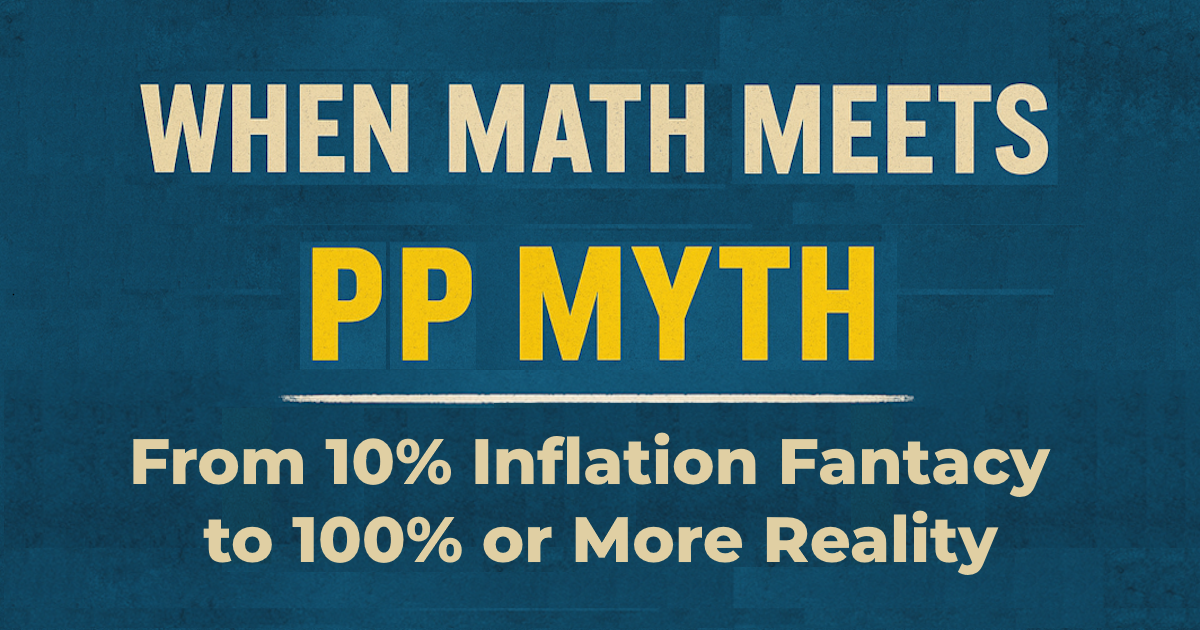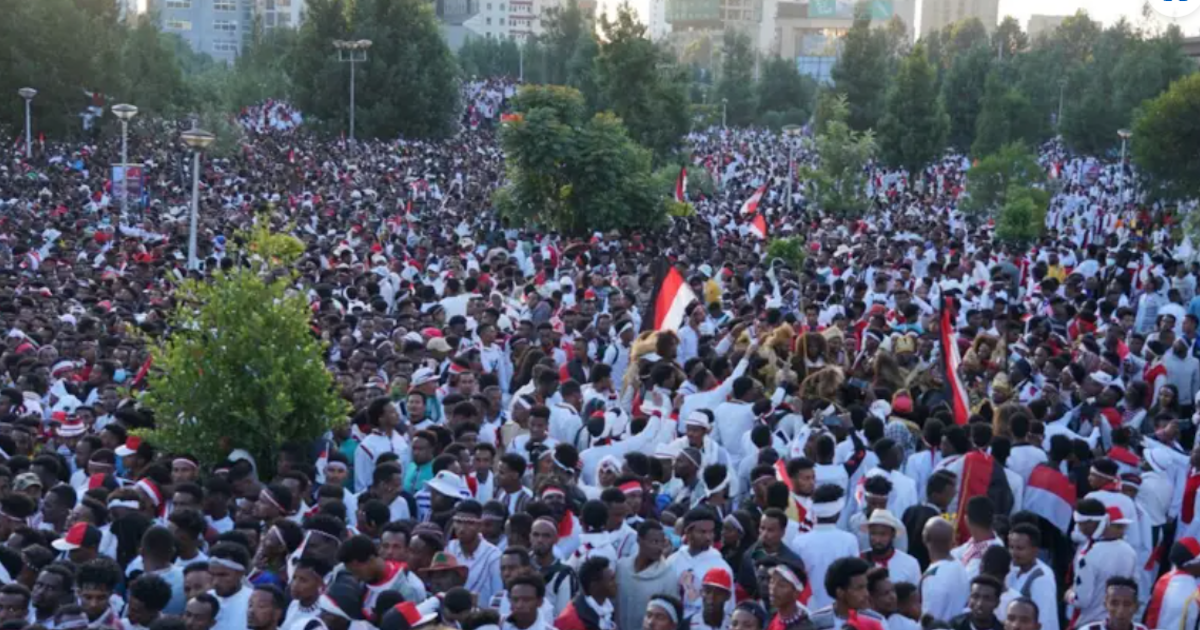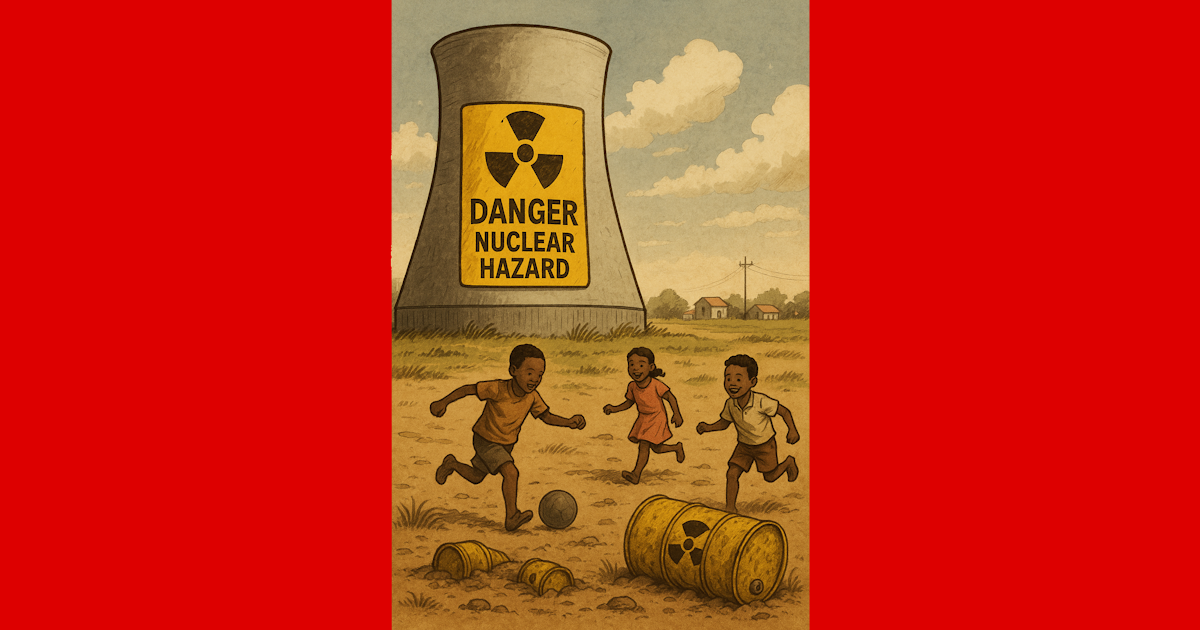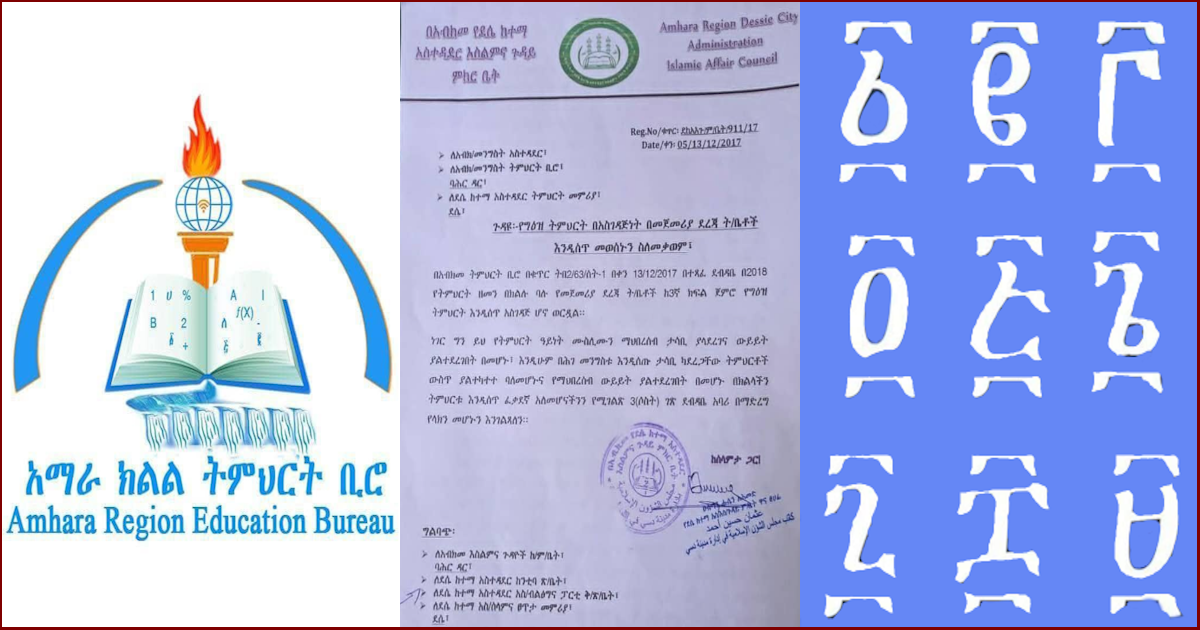Math Meets PP Regime Myth: Inflation That Eats Wages Alive in Ethiopia

Excerpt
This is the third episode in our “Math Meets PP Regime Myth” series, following [1] and [2]. The PP regime claims Ethiopia’s inflation will ease to around 10%, but ground realities tell a different story. Food staples, rent, utilities, and transport have soared by 100% or more, with wages frozen for decades. For ordinary households, real inflation isn’t near 10% — it’s in triple digits, perhaps over 500%. Official figures don’t comfort the poor; they insult them with Orwellian doublespeak.
The Misleading Inflation Basket
A shopping-basket-based inflation figure is often held up as a neat way to track the cost of living. But such averages conceal more than they reveal, especially for the poor. The “basket” is built from a blend of goods and services — from food staples to transport, but also luxuries and discretionary spending. Poor households do not consume like the statistical “average.” Their lives are anchored in essentials such as: food, utilities, rent, and transport. When the prices of these essentials skyrocket, while the cost of luxuries either falls or grows slowly, the official inflation figure becomes a misleading comfort.
Moreover, inflation measures often assume consumers can substitute one item for another — say, shifting from beef to chicken when prices rise. But the poor, already buying at the lowest tier, cannot substitute further. Their small-scale purchases, often from local vendors, mean they pay higher per-unit costs. In short, the “basket” smooths everyone into an average consumer who doesn’t exist, underestimating the real pressure that poor households face. The poor do not consume imported wine, electronics, or gym memberships. Their “basket” is food, rent, utilities, transport, medicines, and essential family maintenance expenses like children’s — and nothing else. And when these spike, no substitution is possible.
The Brutal Reality for the Poor of Ethiopia
Nowhere is this gap between statistical mirage and lived reality clearer than in Ethiopia today. The Prosperity Party regime projects inflation in the lower side of two digits, with predictions around 10% [3]. Professor Steve Hanke, applying independent tracking, estimates inflation at 42% [4]. Yet even this, we argue, is a generous understatement. For the poor who live almost entirely on essentials, the inflation they feel is plausibly in triple digits — well above 100%.
A quick look at the staples tells the story:
- Essential grains (maize, wheat, xaafii, rice) have surged by 50% to over 100%.
- Cooking oil is up well beyond 100%.
- Bread over 100% (considering bakeries also reduce the weight).
- Local pancake or budeena (aka injeeraa) over 100%.
- Pasta foods: also over 100%.
- Eggs: more than 75%.
- Vegetables (onion, tomato, potato, carrot), though seasonal, have still more than doubled.
- Coffee has jumped from about 400 birr per kilo to around 1,500 birr — an increase of over 300%.
- Transport: costs have risen by well over 100%.
- Rent: up at least 50%.
- Utilities: up by at least 50% already, with scheduled annual increments that may reach 400%.
These are not luxury items. They are survival basics. And when survival doubles or triples in cost, inflation is no longer a statistic — it is a sentence. These figures are not precise calculations, nor do they aspire to be. They are an educated guess, drawn from the ground realities of survival.
And they leave little doubt: inflation for Ethiopia’s poor is not 10%, not 42%, but in the ballpark of triple digits. The official figures, instead of reflecting lived experience, function only as a political shield to disguise the severity of economic hardship.
When Wages Stand Still
A more realistic measure of inflation assumes that wages increase over time to partially offset rising costs. Ethiopia is unique in the world in that the salaries of civil servants and other wage earners have stagnated for decades, with no adjustment whatsoever to inflation. For the first time in years, the regime has announced a slight salary increase — but experts warn that more than 60% of the meagre increment will be clawed back through higher taxes, soaring fuel prices, and exorbitant utility bills. And even this small adjustment has yet to materialize, months after being declared.
Considering the decades of wage stagnation, the true inflation experienced by households near the breadline can easily be reckoned at over 500%. Ethiopia’s inflation is not just about prices rising — it is about wages frozen in time while the cost of living runs ahead at breakneck speed. The evidence is plain: compare the cost of basic essentials cited above with their prices just five or ten years ago, and the depth of the erosion in living standards becomes undeniable.
Some dramatic price increases over the last five years illustrate why our “educated guess” of triple-digit inflation for Ethiopia’s poor is not an exaggeration but a lived reality:
- Grains: prices have risen by at least 2 to 4 times.
- Cooking oil: up by 4 to 5 times.
- Ready-made carbs (bread, budeena or injeeraa) over 4 times.
- Pasta foods over 4 times.
- Meat: from around 250 birr per kilo to 4 or 5 times that amount.
- Dairy products (milk, yogurt): increased by 3 to 5 times.
These are the building blocks of daily survival, not luxury goods. When staples multiply in price by several factors within half a decade when wages are frozen, the official claim of 10% inflation becomes not just misleading — it becomes absurd.
Orwellian Prosperity
“The further a society drifts from the truth, the more it will hate those that speak it.” — George Orwell
So, what and where is this “prosperity” that the country is told to be cherishing, as the Prosperity Party — a name steeped in irony — keeps insisting? The Prime Minister has declared, umpteen times, that only the blind would fail to see the prosperity Ethiopia is supposedly swimming in. For citizens crushed under the weight of tripled food costs, skyrocketing rents, and unaffordable transport, such claims are not just tone-deaf — they are purely Orwellian doublespeak.
In Ethiopia today, truth-tellers are branded as enemies, while those who conjure fake prosperity out of cooked statistics are paraded as visionaries.
And the insult deepens. Since July 2024, when the Birr was floated as part of an IMF loan condition, the currency has lost at least between 2.5 to 3 times its value against major currencies. Overnight, Ethiopia became dramatically poorer in global terms. Imports of goods and life-saving medicines skyrocketed, piling further misery on households already gasping under domestic inflation. To call this “prosperity” is not simply cynical — it is cruel theatre played at the expense of a suffering nation.
The Root Causes?
Ethiopia’s devastating economic woes, dire mass poverty, and unbearable inflation all stop squarely at the door of the grossly incompetent PP regime:
- Civil wars engineered to stay in power, draining wealth into militarisation while productivity collapses to zero in conflict zones. As if existing ones aren’t enough, the PP regime is still keen to expand a civil war to the east [5] because civil war is now their proven currency to stay in power.
- Multi-trillion birr splurges on “kindergarten” mega-projects — parks, palaces, vanity highways, and street and building lights — while urgent investments that could lift millions above the breadline are ignored.
- A humiliating surrender to devastating IMF conditions in a desperate bid to bankroll militarisation, with no end to IMF dictates in sight.
- Corruption so endemic that politicians, generals, and their business cronies live in a bubble — detached from the daily misery of citizens as if on another planet. We are not talking about ordinary corruption schemes but “state investments and enterprises” built upon corrupt foundations to siphon wealth in billions of dollars [6].
To call this regime “incompetent” is far too mild. What Ethiopia suffers today is not mismanagement, but deliberate economic sabotage dressed up as governance. Until the architects of this ruin are held to account—better still, removed—no “prosperity” will ever trickle down — only poverty, deeper and darker.
Selected References
- Editorial Team, Math Meets PP Myth: 30 Million Tree Planters, 14 August 2025, OROMIA TODAY.
- Editorial Team, Math Meets PP Myth: Series Launch, 11 August 2025, OROMIA TODAY.
- Ethiopia’s inflation rate to decline to 10% in 2025/2026 fiscal year, 24 April 2025, Reuters.
- Steve Hanke, “I measure Ethiopia’s inflation at a CRUSHING 42%/yr“, X (formerly Twitter).
- OT Editorial, A Time Bomb Buried in Oromia and Somali Regions, 27 August 2025, OROMIA TODAY.
- “Who are Abiy Ahmed’s Main Corruption Networks?” (in Amharic), 21 August 2025, The Horn Conversation Channel, YouTube.





